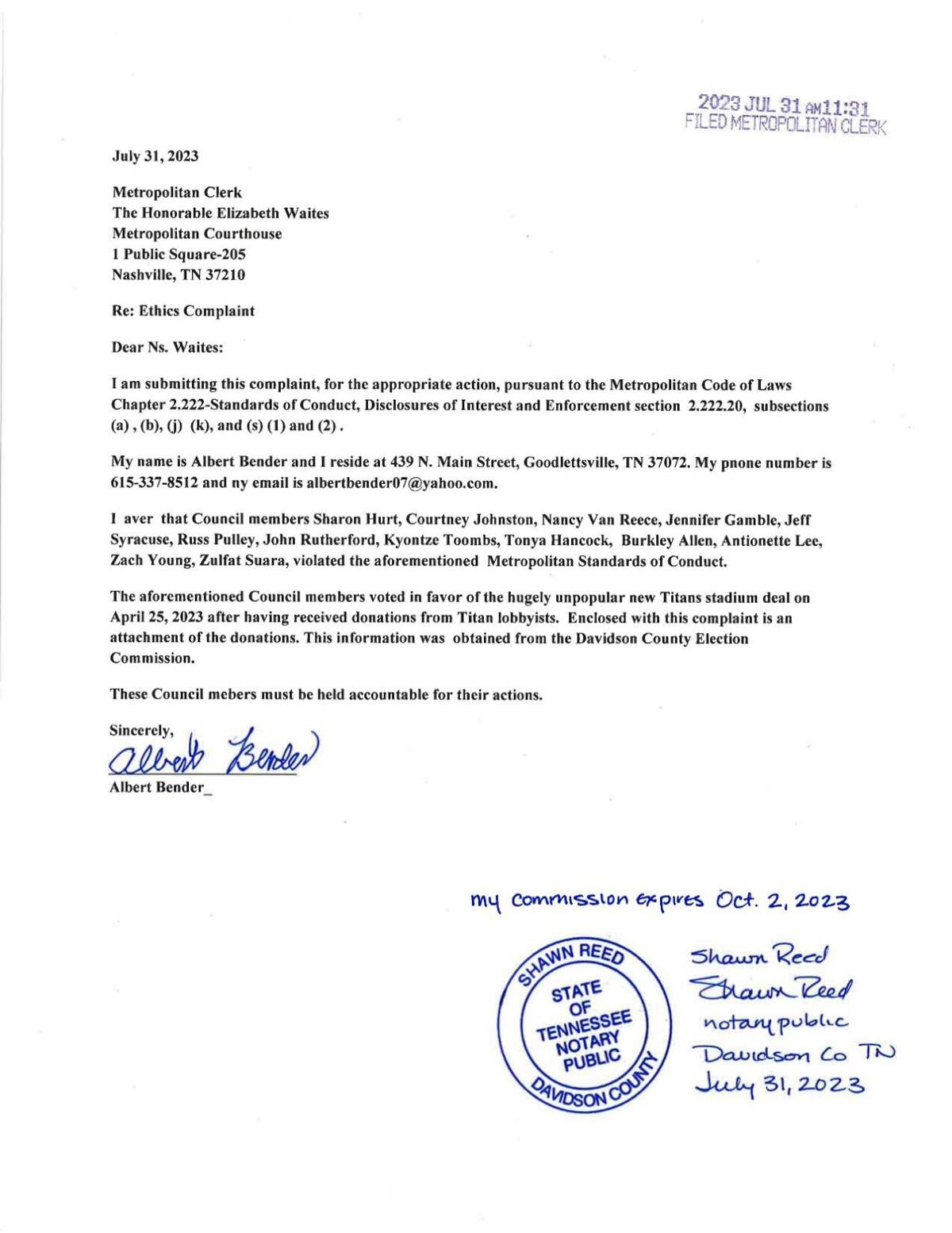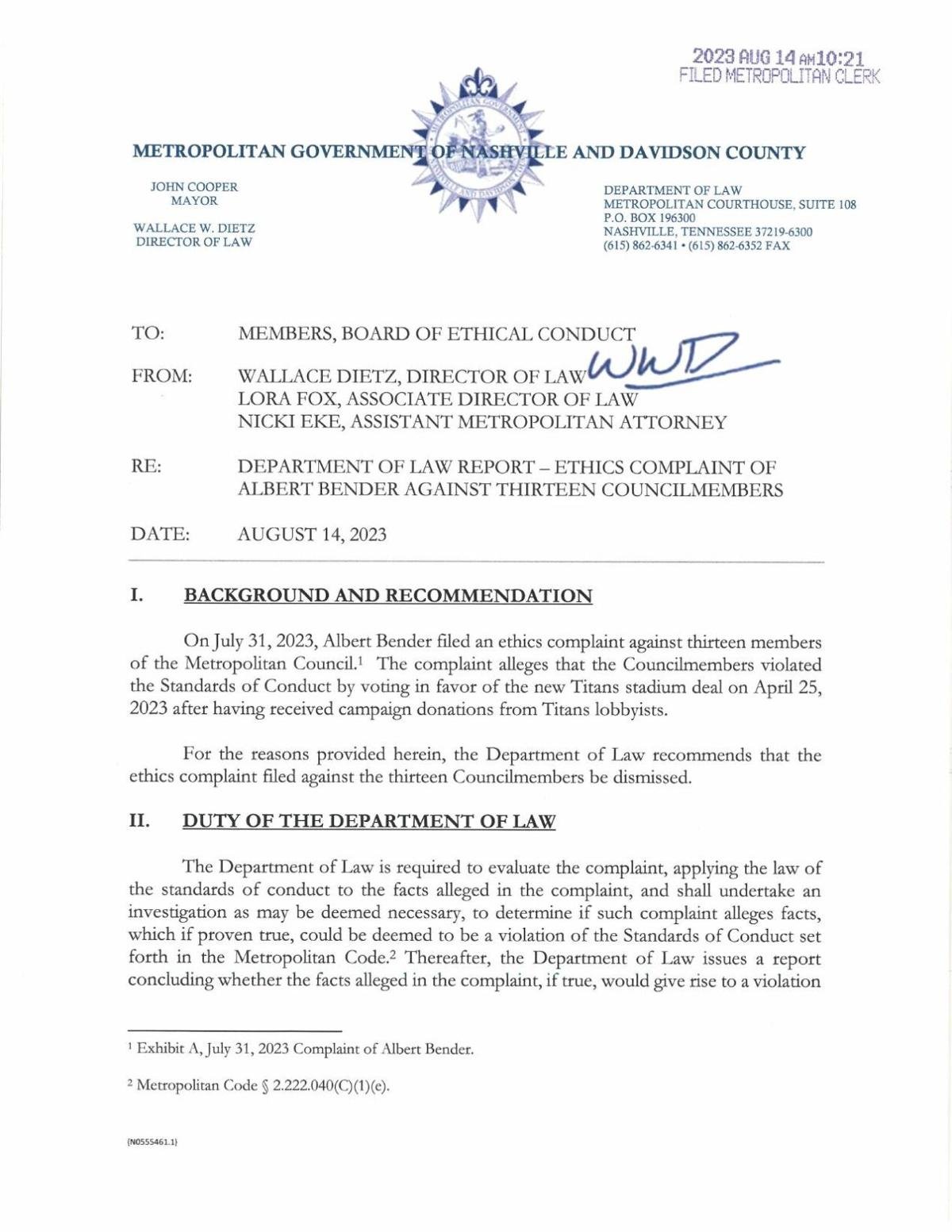Update, Aug. 25: On Friday morning, the Metro Ethical Conduct Board dismissed Bender’s complaint after a half-hour of discussion. The body agreed with the analysis provided by the Metro Legal Department, provided here in full.
Metro’s Ethical Conduct Board will discuss a complaint against 13 Metro councilmembers at its Aug. 25 meeting. The complaint stems from the Titans’ yearslong push to win support for a new stadium from council.
Cherokee activist, historian and writer Albert Bender filed the complaint with Metro’s Ethical Conduct Board on July 31. Bender alleges six violations of Metro’s Standards of Conduct and details $28,370.30 in campaign contributions spread between 13 Metro councilmembers. A formal response from Metro law director Wally Dietz recommends total dismissal of all violations. In order to win city approval for a new $2.1 billion stadium, the Titans employed a team of lobbyists at the local and state levels to help win political support for $1.2 billion in public subsidies.
Councilmembers Sharon Hurt, Courtney Johnston, Nancy VanReece, Jennifer Gamble, Jeff Syracuse, Russ Pulley, John Rutherford, Kyontzè Toombs, Tonya Hancock, Burkley Allen, Antoinette Lee, Zach Young, Erin Evans and Zulfat Suara each took between $500 and $5,000 in campaign donations from lobbyists employed by the Titans during the 2023 election cycle. Evans is listed in complaint materials but not included among those accused of ethics violations; Evans did not end up voting in favor of the new lease. The complaint names Sam Reed of Jigsaw Consulting and James Weaver of Holland & Knight as sources of campaign money, both of whom lobbied for the Titans during their successful push to win council approval. Hurt, Suara, Toombs and Gamble were all critical swing votes as the deal faced additional hurdles from council in April. All eventually sided with the Titans.
The complaint names six subsections within the “Standards of Conduct, Disclosure of Interests, and Enforcement” chapter of the Metropolitan Code of Law that concern bribery and potential conflicts of interest for councilmembers stemming from compensation or material gain. Subsection (a) explicitly exempts campaign contributions from ethical scrutiny, qualifying lobbyist money generally as an allowable financial gain for a councilmember. Dietz also argues that Bender did not present any evidence of a “quid pro quo.” In other words, no proof demonstrates that the contributions were conditioned on a vote.







